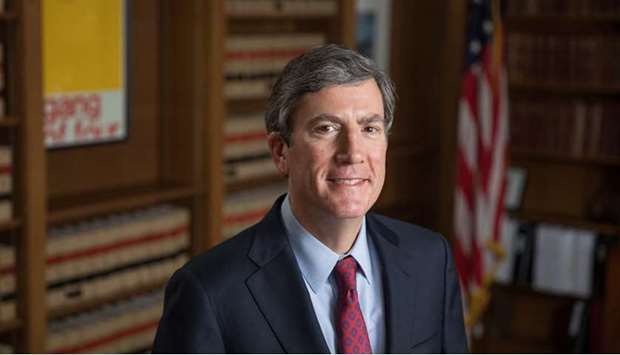A federal judge in California on Monday dealt a setback to a new Trump administration rule that sought to block almost all asylum applications at the border, ruling that an injunction against the rule should apply nationwide.
The rule, unveiled on July 15, requires most immigrants who want asylum in the United States to first seek asylum in a third country they had traveled through on their way to the United States.It forms part of US President Donald Trump's anti-immigration policy, a centerpiece of his 2016 election campaign and a major issue as he seeks re-election in November 2020.
San Francisco-based US District Judge Jon Tigar had previously issued a nationwide injunction blocking the rule, but the 9th US Circuit Court of Appeals narrowed it to only border states within its jurisdiction - California and Arizona - and sent the question back to Tigar.
On Monday, Tigar ruled it should apply across the entire border, pending a trial on the underlying legality of the Trump administration rule.
One of the Republican president's main objectives has been to reduce the number of asylum claims, primarily by Central American migrants who have crossed the US-Mexico border in large numbers during his presidency.
The rule would block nearly all families and individuals from countries like El Salvador, Honduras and Guatemala who are seeking to escape poverty and persecution at home from entering the United States after crossing through Mexico as asylum seekers. The rule would keep asylum protections for Mexican citizens.
The rule drew legal challenges, including from several immigrant-rights groups which accused the administration of pursuing a virtual asylum ban and jeopardizing the safety and security of migrants fleeing persecution and seeking safety in the United States.
The Trump administration had also asked the US Supreme Court to block the appeals court ruling that applied only to California and Arizona. It was not immediately clear what the federal government's way forward was to attempt to overturn the nationwide blocking of its new rule pending trial.

